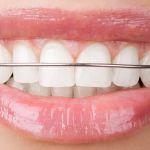Best Ways to Avoid Oral Cancer: Tips and Strategies for Prevention
- 1. Avoid Smoking and Tobacco Products
- 2. Healthy Diet and Nutrition
- 3. Regular Dental Check-ups
- 4. Limiting Alcohol Consumption
- 5. Protecting Yourself from HPV
- 6. Sun Protection for Your Lips
- 7. Know the Signs and Symptoms
Avoid Smoking and Tobacco Products
One of the leading causes of oral cancer is the use of tobacco products, including cigarettes, cigars, and smokeless tobacco. Tobacco contains carcinogens that can damage the cells in the mouth, leading to the development of cancer over time. Studies have shown that smokers are significantly more likely to develop oral cancer than non-smokers. Quitting smoking is one of the most effective ways to reduce your risk of oral cancer.
If you're trying to quit, there are many resources available, such as support groups, smoking cessation programs, and nicotine replacement therapies that can help make the process easier.
Healthy Diet and Nutrition
A balanced diet rich in fruits and vegetables is essential for overall health and can significantly lower your risk of developing oral cancer. Foods like leafy greens, berries, and citrus fruits contain antioxidants that help fight cancer-causing free radicals in the body. Additionally, foods rich in vitamins A, C, and E are known to support oral health and protect against cancer.
Consider incorporating more of these nutrient-dense foods into your diet to boost your immune system and lower the risk of oral cancer. A well-balanced diet can help ensure that your body has the necessary defenses to fight off potential cancer cells.
Regular Dental Check-ups
Visiting your dentist regularly for check-ups is essential for detecting early signs of oral cancer. During your dental exams, your dentist will examine your mouth for any unusual growths, sores, or other symptoms that could indicate the presence of cancer. Early detection is key to improving the chances of successful treatment.
Make sure to see your dentist at least once every six months. If you're at a higher risk for oral cancer, such as being a smoker or heavy drinker, you may need to visit more frequently. Your dentist can provide personalized advice based on your health and risk factors.
Limiting Alcohol Consumption
Excessive alcohol consumption is another significant risk factor for oral cancer. Alcohol can act as an irritant to the tissues in the mouth, making them more susceptible to cancer-causing chemicals. Studies suggest that individuals who drink heavily and smoke are at an even higher risk of developing oral cancer.
Reducing or eliminating alcohol intake can significantly lower your risk of oral cancer. If you choose to drink, it's important to do so in moderation. The CDC defines moderate drinking as up to one drink per day for women and up to two drinks per day for men.
Protecting Yourself from HPV
Human papillomavirus (HPV) is a common virus that has been linked to several types of cancers, including oral cancer. HPV is often transmitted through sexual contact, including oral sex. Certain strains of HPV can cause changes in the cells of the mouth and throat, which may eventually lead to cancer.
Getting vaccinated against HPV is a proactive step in reducing your risk. The vaccine is available for both men and women and is most effective when administered before exposure to the virus. In addition to vaccination, practicing safe sexual behaviors can further reduce your risk of HPV-related oral cancer.
Sun Protection for Your Lips
While most people focus on protecting their skin from sun exposure, it's important not to overlook your lips. Just like the rest of your skin, your lips are vulnerable to the harmful effects of UV radiation, which can increase the risk of lip cancer, a type of oral cancer.
To protect your lips, apply a lip balm with SPF regularly, especially when spending time outdoors. Wearing a wide-brimmed hat and seeking shade during peak sun hours can further protect your lips and skin from sun damage.
Know the Signs and Symptoms
Being aware of the symptoms of oral cancer can help you catch the disease in its early stages when it is most treatable. Common signs to watch for include persistent sores in the mouth, unexplained bleeding, difficulty swallowing, and a lump or thickening in the mouth or neck. If you notice any of these symptoms, it's important to see a doctor or dentist as soon as possible.
Remember that many of these symptoms can be caused by other, less serious conditions. However, it's always better to err on the side of caution and have any potential issues examined by a healthcare professional.







 Bell Road Family Dentistry - Montgomery4.0 (240 review)
Bell Road Family Dentistry - Montgomery4.0 (240 review) Ernstberger Orthodontics5.0 (326 review)
Ernstberger Orthodontics5.0 (326 review) Scott Silverman, MD3.0 (6 review)
Scott Silverman, MD3.0 (6 review) West Jordan Modern Dentistry and Orthodontics4.0 (222 review)
West Jordan Modern Dentistry and Orthodontics4.0 (222 review) Harbor Care Health and Wellness Center4.0 (154 review)
Harbor Care Health and Wellness Center4.0 (154 review) Evergreen Park Dental4.0 (23 review)
Evergreen Park Dental4.0 (23 review) The Importance of Oral Health Education During Pregnancy for a Healthy Pregnancy
The Importance of Oral Health Education During Pregnancy for a Healthy Pregnancy Best Tips for Brushing Your Teeth Properly for Healthy Gums: Essential Techniques for Oral Health
Best Tips for Brushing Your Teeth Properly for Healthy Gums: Essential Techniques for Oral Health Why Skipping Dental Checkups Can Lead to Bigger Oral Health Problems
Why Skipping Dental Checkups Can Lead to Bigger Oral Health Problems Advantages of Porcelain Dental Restorations
Advantages of Porcelain Dental Restorations How Can Diabetes Cause Tooth and Gum Problems? Preventing and Managing Oral Health Issues
How Can Diabetes Cause Tooth and Gum Problems? Preventing and Managing Oral Health Issues Healthy Habits for Promoting Good Oral Health and Hygiene: Tips for a Healthy Smile
Healthy Habits for Promoting Good Oral Health and Hygiene: Tips for a Healthy Smile